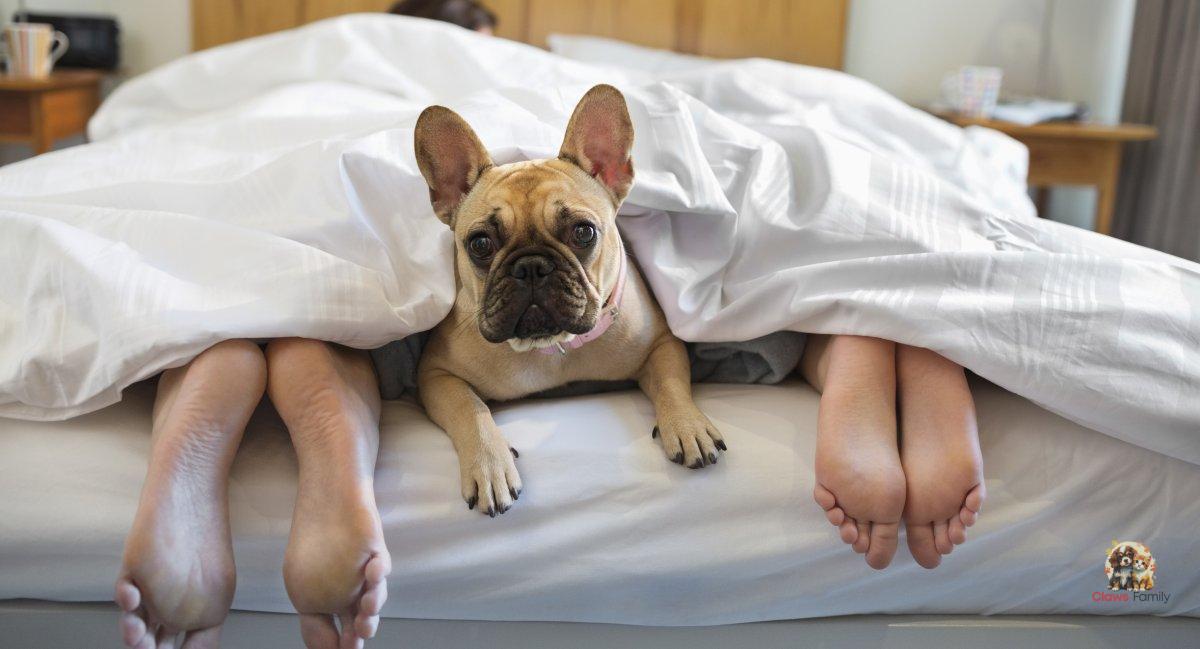In Italy, nearly one out of every two families lives with a pet, forming a bond that often extends to sleep. Many dog and cat owners are accustomed to their pets’ presence at night. However, this habit isn’t always without risk. Scientific studies on the subject are recent and still debated; however, you can learn to manage relationships with pets consciously and respectfully. Just follow proper hygiene guidelines and understand the pros and cons of each choice, even when children are involved.
Doctor, Since letting my dog sleep near me, I wake up feeling more relaxed. Is It Just My Impression?
Sleep is very important, and each of us has developed a personal routine for better rest. The presence of a pet, like a dog or cat, has positive effects for many people. Numerous studies have demonstrated that the primary benefit is psychological. 69 studies on this topic were analyzed in a widely cited review in popular media.
According to the authors of the review, human-animal interaction stimulates the production of oxytocin, a hormone that boosts mood and can help reduce stress and pain. As pet owners know, petting and cuddling provide an immediate sense of well-being. Sustaining these positive feelings through cohabitation with a pet is undoubtedly a beneficial practice. This study also considers physical health impacts, a topic we have already covered in the “Having a Dog Prolongs Life?” section.
We should always remember, however, that human-animal interaction is a relatively new field of scientific research, and studies are often based on anecdotal evidence and subjective references. Not all conclusions align, with contrasting findings on psychological and physical well-being effects.
So, does sleeping with pets also have negative effects?
A recent study specifically focused on stress and psychological well-being confirms this. The 1,500 study participants primarily lived with dogs and cats, though owners of other small animals (fish, birds, reptiles, and rodents) were also included. Before the co-sleeping experience, 93% of participants believed that having pets in the room or bed would positively (or neutrally) impact their sleep quality. However, it was found that sharing a room or bed with pets led to poorer sleep and, in some cases, the onset or worsening of insomnia.
Sleep was disturbed by noise, movement, and warmth—dogs and cats, after all, have a higher body temperature than humans. These effects were particularly noted among dog owners, whereas the presence of a cat was much less invasive. The difference is explained by the distinct natures and sleep rhythms of the primary pet species, which do not align with human sleep patterns, making it challenging to find a compromise. It is therefore essential to manage relationships with pets, especially when a fundamental health factor like sleep is involved.
Doctor, What Should We Know to Protect Our Health?
Without fear, it is wise to understand the risks and prevent dangerous situations. Besides the sleep disturbances already mentioned (movements, noise, as well as bites and scratches), certain health risks should also be considered. Allergies and asthma can develop or worsen, as discussed in the “Can You Recover from Cat Allergies?” section.
Despite all the hygiene precautions taken when walking dogs, it is possible to encounter parasites like fleas and ticks, which are hazardous to both animals and humans. Lastly, zoonotic risks—the transmission of diseases caused by germs and viruses from animals to humans—should not be overlooked.
Can pets sleep near children?
Growing up with a pet enriches children’s lives and does not present different risks compared to adults. Naturally, parents must closely supervise interactions between small pets like dogs and cats and their children. Therefore, there are no contraindications to a pet’s presence in a child’s room, provided that hygiene is maintained, including for newborns.
How can we prepare for a good night’s sleep with pets?
First, maintain excellent pet hygiene, especially after outdoor excursions, ensuring they haven’t come into contact with dirty objects, excrement, or other animals. Also, keep the home environment clean by changing sheets often, sanitizing mattresses and pillows periodically, and removing pet hair from surfaces using a vacuum with a specialized filter. To foster harmonious coexistence, train dogs and cats to follow your nightly routine with respect and responsibility.
More: Dog News


